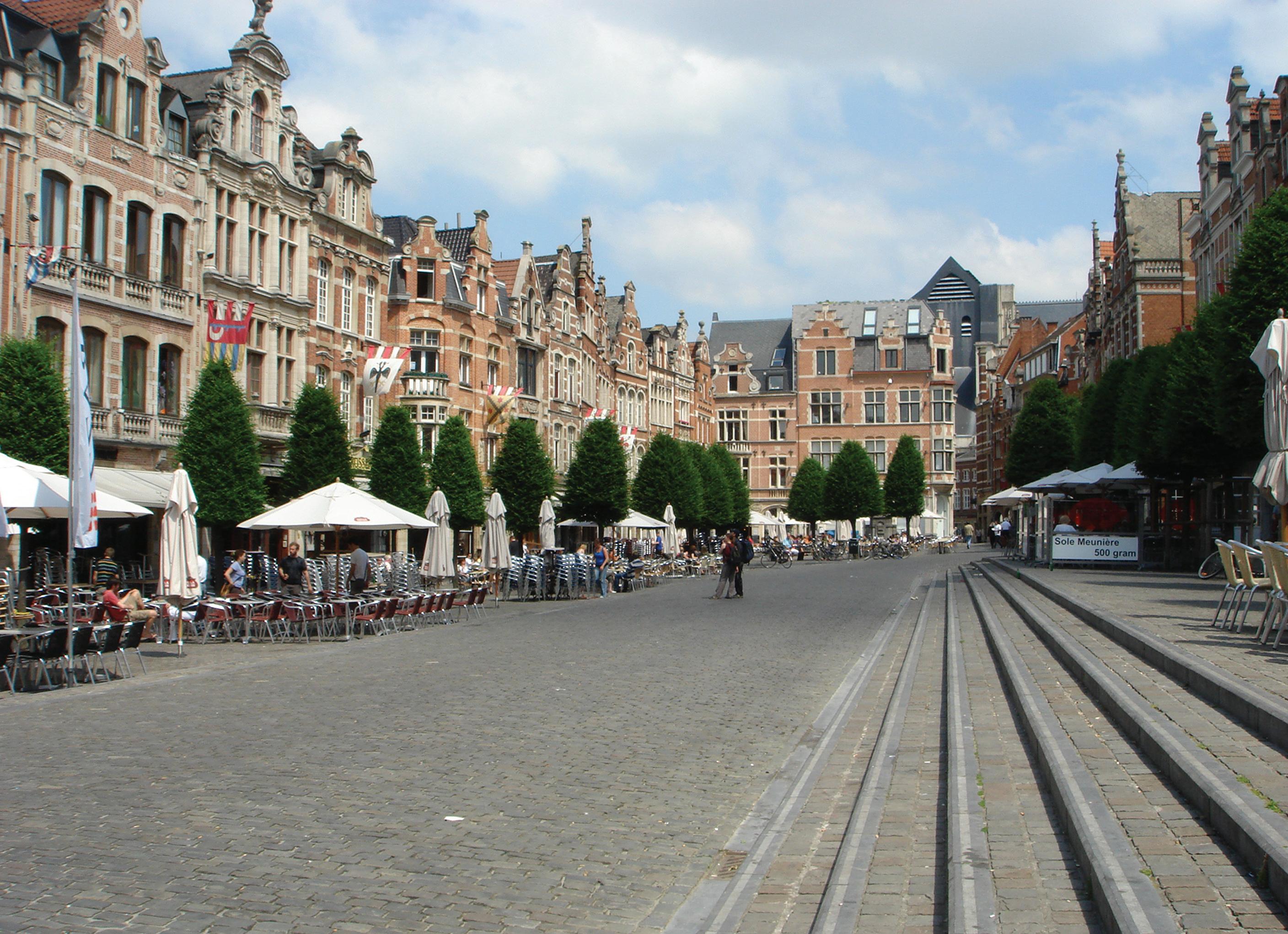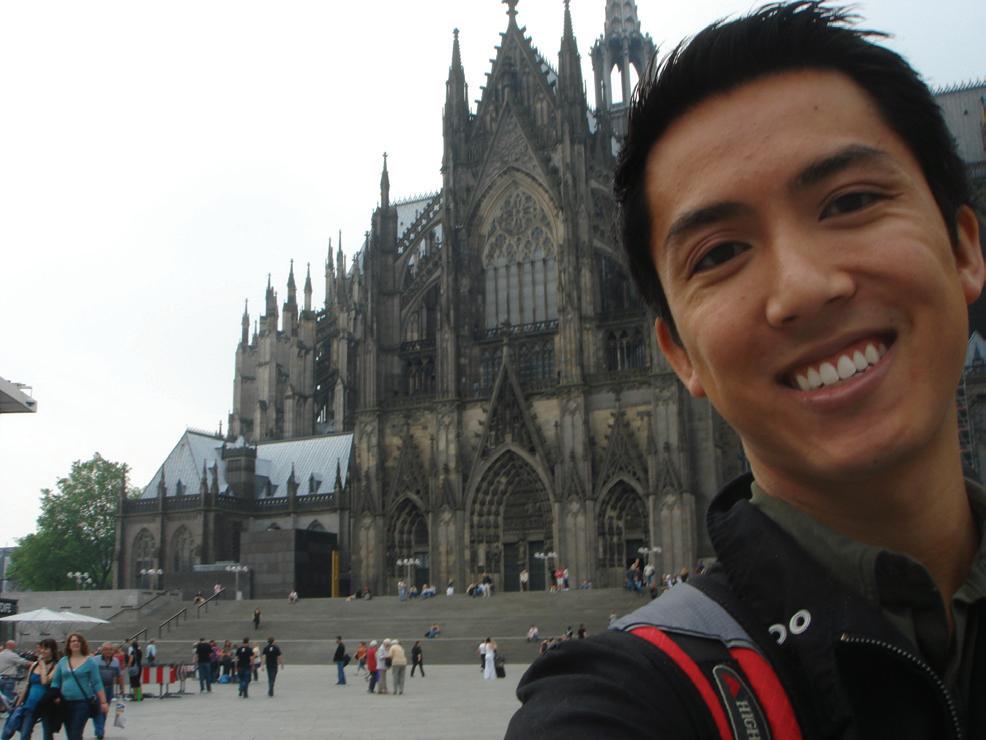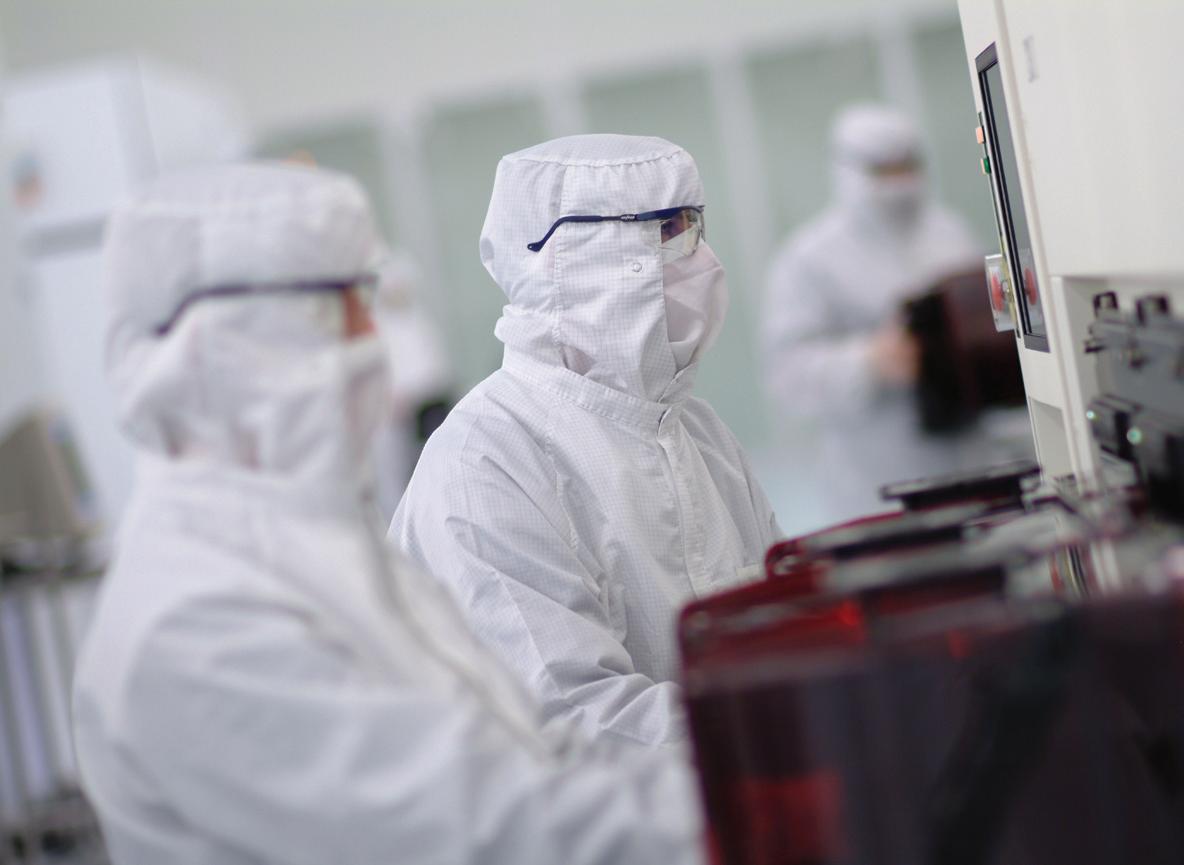
4 minute read
Science in the Summertime
Visiting Cologne, Germany.
By Mary SpIro pHoToS By MIkE kEUNG
Advertisement

Aselect group of students from Johns Hopkins University will spend 10 weeks during the summer of 2010 in Leuven, Belgium conducting research at The Inter-University MicroElectronics Centre (IMEC). Faculty affiliated with Johns Hopkins Institute for NanoBioTechnology (INBT) worked cooperatively with researchers at IMEC to choose students to participate in projects of mutual interest to both institutions.
INBT will fund four students this summer through an IRES (International Research Experience for Students) grant received from the National Science Foundation. Students work at IMEC’s world-class microfabrication facility and learn to design, fabricate and test a wide range of biomedical devices.
This is the second year that INBT has offered the IRES program at IMEC. During the summer of 2009, INBT sent Mike Keung to work at IMEC. Keung recently completed a bachelor’s degree in chemical and biomolecular engineering with a minor in entrepreneurship and management and is now working toward a master’s degree.
While an undergraduate student, Keung assisted in the laboratory of associate professor David Gracias in the department of chemical and biomolecular engineering and accumulated nearly two years of experience working in micro- and nanofabrication. He also had participated in previous summer corporate internships, most notably at Exxon-Mobil.
When Keung left for Belgium in May 2009, he had fairly narrow expectations for what he wanted to achieve. “I hoped to learn new fabrication techniques and ways of perfecting the current ones I was already familiar with. By bringing these back to the Gracias lab, I hoped to improve our own fabrication methods as well as learn more about
INBT/IMEC program sends students to Belgium for research internships



Microfabrication laboratory at IMEC. Photo: IMEC.
The entrance to IMEC The Eiffel Tower, of course!

the biological side of nanotechnology,” Keung said. But upon his return, Keung said the internship experience was far richer than he had imagined.
“The environment at IMEC is similar to an academic environment,” Keung said. “There are many young people of all ethnicities, and most of them speak English. The dress code is casual. There are many people working on postdocs or PhDs.”
But, since IMEC is a corporate research and development organization, there also were some major differences. For example, the facilities at IMEC were state-of-the-art with devices he had not used before, such as a scanning electron microscope. But when Keung wanted to use a specific piece of equipment for an experiment, he had to schedule the experiment with the technician in charge of operating that machine.
“At a university, you can run your experiments pretty much when you want to,” Keung said. “But at IMEC the work day was the typical 9 to 5, so it could take a while before the technician could get to your sample.”
Although he was not able to operate the equipment himself, he was happy to have the results from highly trained technicians who had had years of training and experience using the advanced tools.
Keung also took advantage of his time in Europe. On weekends, Keung took short trips and was able to tour major cities such as Paris, London, Amsterdam, Cologne, Antwerp, Brussels, Ghent and Bruges. He took many photographs, most of which can be seen at the blog he kept of his work and travels. Read his blog at http://keungatimec.blogspot.com/.
Keung said his time at IMEC was an amazing research experience.
“The people at IMEC are very dedicated to their research. It was nice being able to spend my entire day working on one project. Also, I had time to be exposed to the research and ideas of those around me, just by walking around and chatting with my coworkers. It helped me become more independent and definitely gave me a taste of what working in a corporate environment would be like,” Keung said. “I also learned that the food markets close early and that a bicycle is absolutely necessary to get around. Nearly everyone bikes in Belgium,” Keung added.
Both undergraduate and graduate positions are available for the IRES program at IMEC. Students from underrepresented racial/minority groups and women in science and engineering are encouraged to apply. The application process for Summer at IMEC 2011 will open in December 2010. ®

